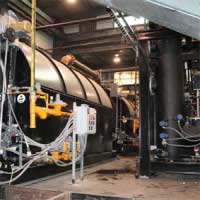Technicality at worst. Under reverse merger acco
Post# of 43068

Technicality at worst. Under reverse merger accounting rules, it's not the purchase price that transfers over but the asset on the books of the other. JBII was a shell in 2009 that reverse merged several businesses into it including Javaco which was sold by the same entity that sold the media credits. It could be argued that the media credits were all part of an umbrella of the reverse merger.
The post reverse merger comparative historical financial statements furnished for the "legal acquirer" should be those of the "legal acquiree" (i.e., the "accounting acquirer"), with appropriate footnote disclosure concerning the change in the capital structure effected at the acquisition date.
http://www.gbhcpas.com/ReverseMergers.html
A single local-office SEC attorney disagreed who couldn't even get the math right in the litigation release. It seems reasonable to me that additional sloppy errors could been made by the same author of the litigation release.
A reverse merger is accounted for as a reverse acquisition and recapitalization. The privately-held company is the “Acquirer” for accounting purposes. The public company is the “Issuer”. The historical financial statements of the Issuer become those of the Acquirer.
http://www.rowbotham.com/knowledgenet/execfoc...etter1.php
Under reverse merger accounting rules, as you see above, the assets acquired become part of the balance sheet. Not the purchase price. Where it becomes a bit weird here is that the media credits for some reason were separate from Javaco even though they were acquired on the exact same day, in the exact same filing, and from the exact same seller. Seems to me the real error was not structuring the media credits within the Javaco sale in the first place then a reverse merger with Javaco and its media credits would have been 100% correct to transfer the $10 million value.
 (0)
(0) (0)
(0)